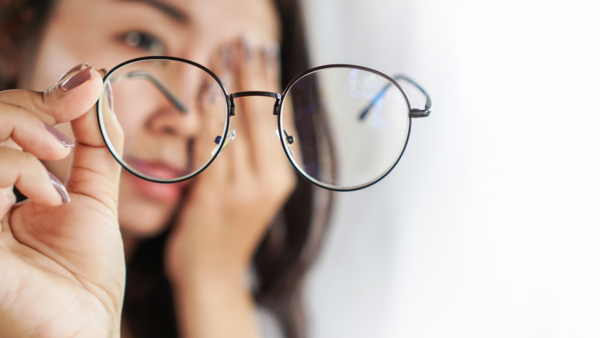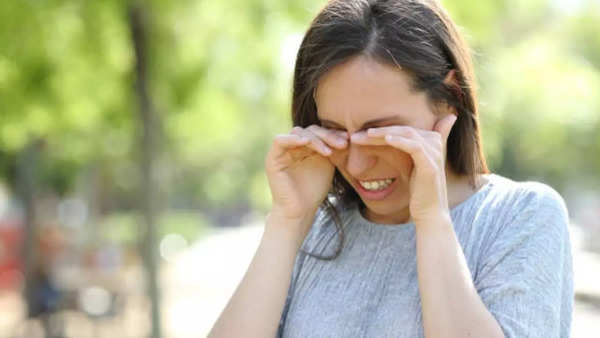What is an eye stroke?
An eye stroke, also known as retinal artery occlusion, occurs when there is a blockage in one of the arteries carrying blood to the retina.The retina is the part of your eye that receives light and sends visual information to your brain. When its blood supply is interrupted, it can lead to sudden vision loss and potentially permanent damage.
Several factors can contribute to an eye stroke, including high blood pressure, diabetes, high cholesterol, and other conditions that affect blood vessels. However, heat waves pose a unique risk because they can lead to dehydration and increased blood viscosity, making blockages more likely.

Image: CANVA
What are the symptoms to watch out for
The later symptoms of an eye stroke can be quite alarming and typically appear suddenly. They include:
- Sudden vision loss in one eye
- Visual disturbances, such as shadows or dark spots
- Partial or complete loss of visual fields
- Painless vision changes
How do heat waves impact eye health?
Heatwaves can cause a variety of health issues, including dehydration and heatstroke. But how do they specifically affect your eyes?
Dehydration and dry eyes
One of the primary concerns during a heatwave is dehydration. When your body loses more water than it takes in, it can lead to a host of problems, including dry eyes. Dry eyes occur when your eyes don’t produce enough tears or the quality of tears is poor, leading to discomfort, redness, and a gritty sensation.
Increased risk of eye infections
Sweating during a heatwave can increase the risk of eye infections. Sweat can carry bacteria and other pathogens, which can get into your eyes, especially if you rub them frequently. This can lead to conjunctivitis (pink eye) and other infections.
UV radiation exposure
Heatwaves often coincide with high levels of UV radiation, which can be harmful to your eyes. Long exposure to UV rays can lead to cataracts and macular degeneration, both of which can cause significant vision problems.

Eye Stroke Cases On Rise In India (Image Credits: iStock)
Research supports the link between heat and increased health risks, including eye health. A study published in the journal Environmental Research found that high temperatures were associated with an increased risk of ocular diseases. Another study in the Journal of Clinical Medicine highlighted the connection between dehydration and dry eye syndrome, emphasising the importance of maintaining proper hydration levels during heat waves.
Prevention techniques: Keeping your eyes safe
Protecting your eyes during a heatwave involves several strategies to minimize the risks associated with high temperatures.
Water is your lifesaver
The most crucial step in protecting your eyes is to stay hydrated. Drinking plenty of water helps maintain the moisture in your eyes and prevents dehydration, which can exacerbate dry eyes and other issues. Aim for at least eight glasses of water a day, and increase your intake if you’re spending time outdoors or sweating more than usual.
Wear protective eyewear
Sunglasses aren’t just a fashion statement; they are essential for protecting your eyes from harmful UV rays. Choose sunglasses that block 100% of UVA and UVB rays to prevent damage from prolonged sun exposure. Wide-brimmed hats can also provide additional shade and protection for your eyes.
Avoid direct sunlight
Whenever possible, avoid being in direct sunlight during peak hours, usually between 10 am and 4 pm. If you must be outside, seek shade and take frequent breaks to cool down.
Use artificial tears
If you experience dry eyes, using artificial tears can help keep your eyes lubricated. These drops can be found over-the-counter and can provide relief from dryness and irritation. However, if your symptoms persist, it’s best to consult with an eye care professional.
Maintain good hygiene
Good hygiene is essential to prevent eye infections. Wash your hands frequently, especially before touching your face or eyes. Avoid sharing personal items like towels or eye makeup, which can transfer bacteria.
Managing eye health during a heatwave
Managing your eye health during a heatwave is about being proactive. Regular eye exams are crucial, especially if you have underlying health conditions like diabetes or hypertension, which can increase your risk of an eye stroke.
Regular eye check-ups
Schedule regular eye check-ups with your optometrist or ophthalmologist. These visits can help detect early signs of eye problems and ensure that any issues are addressed promptly. Early detection is key in preventing severe damage.
Monitor your health
Keep an eye on your overall health. Conditions like high blood pressure and high cholesterol can increase your risk of an eye stroke, so managing these conditions is essential. Follow your doctor’s advice regarding medication, diet, and lifestyle changes to keep these risk factors in check.
Stay cool
During a heatwave, it’s important to stay cool. Use fans or air conditioning to keep indoor temperatures comfortable. Wear light, breathable clothing, and take cool showers or baths to lower your body temperature.
Breathe easy, digest happy: Yoga poses for a balanced gut